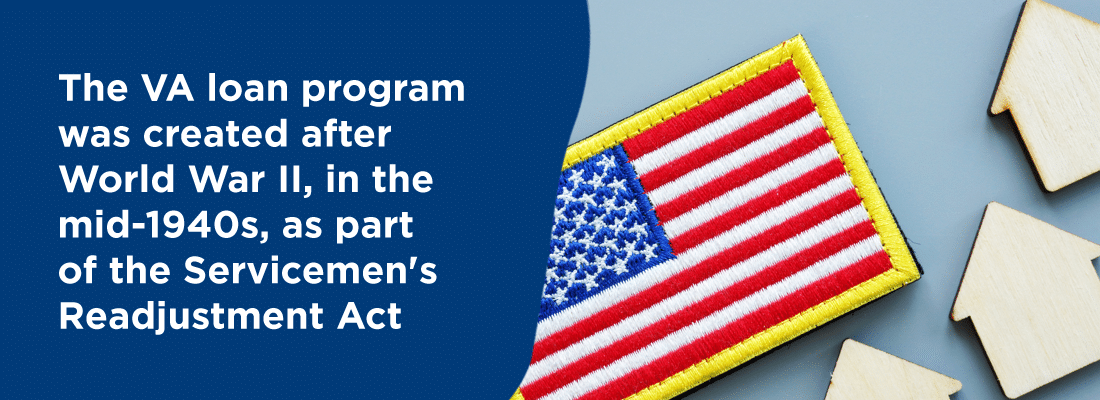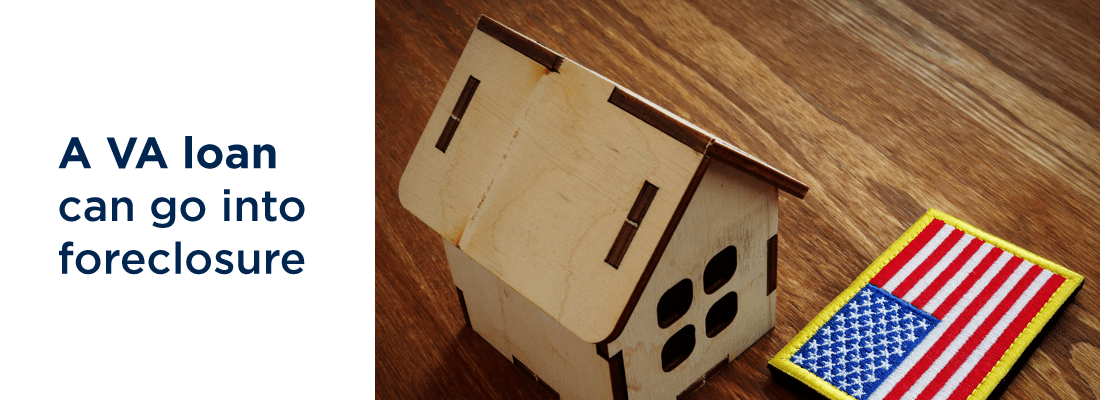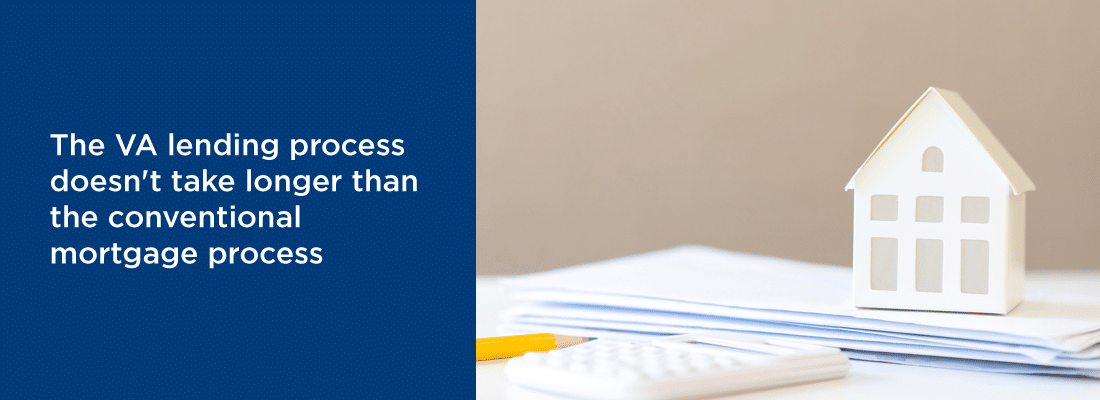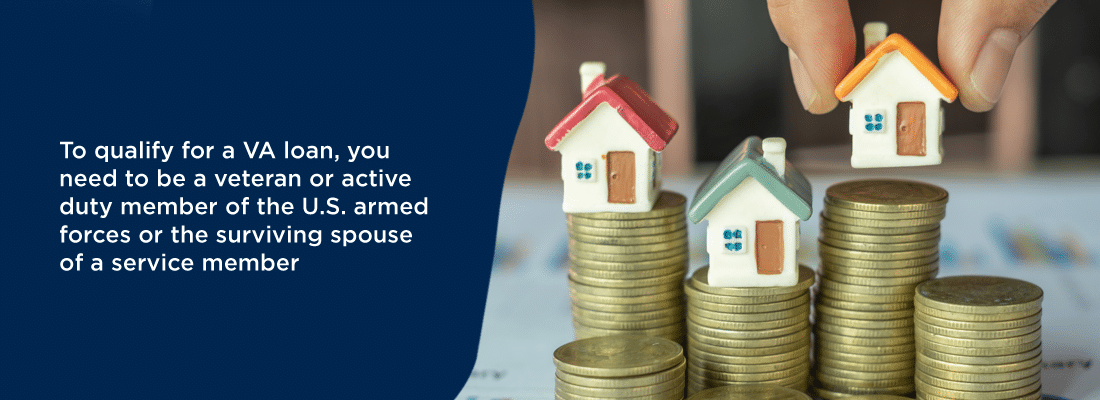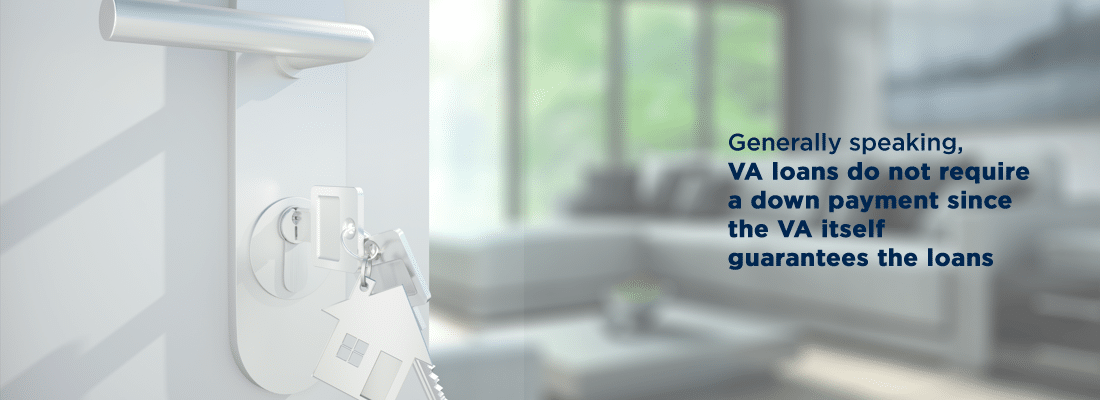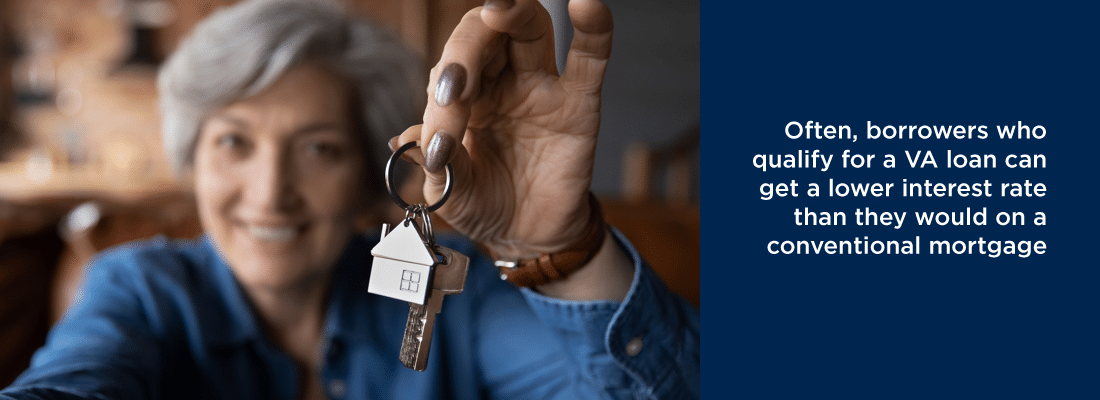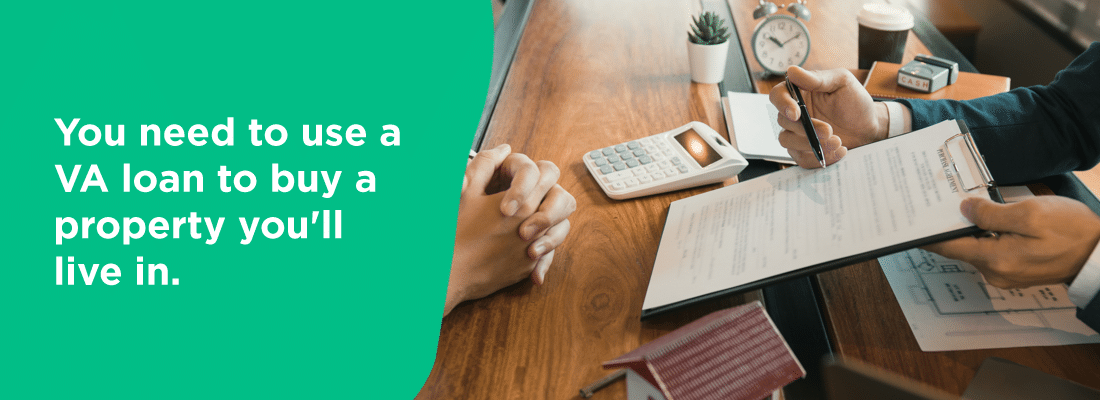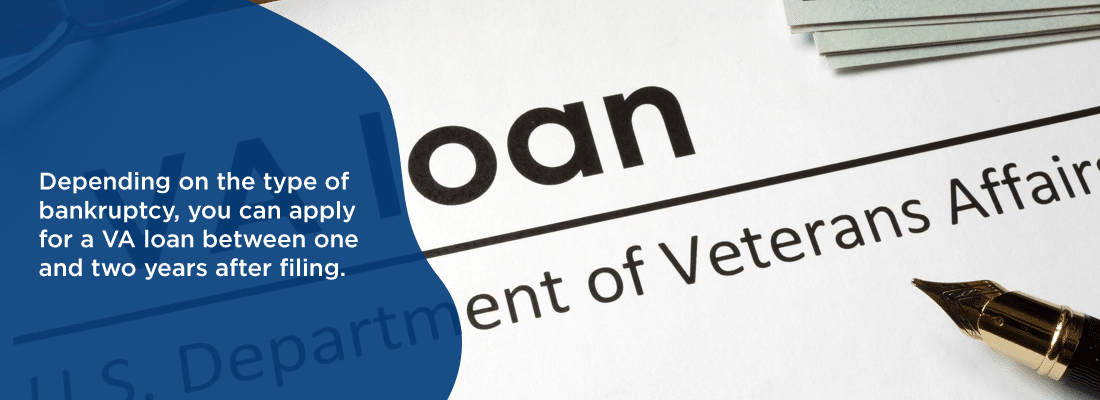If you’ve served in the armed forces, the VA loan program can help make your dream of becoming a homeowner come true. The VA loan program is one of the most generous government-backed mortgage programs available, as it doesn’t require a down payment or mortgage insurance.
You might have a lot of questions about VA loan requirements before you apply. Here’s everything to know about VA home loans so you can decide if it’s the right step to take on the path toward homeownership.
What Is a VA Loan?
A VA loan is a type of mortgage. The loan usually comes from a private lender, such as Assurance Financial, but is backed by the Department of Veterans Affairs. VA loans have several features that set them apart from conventional mortgages or other types of government-sponsored home loans:
- They usually don’t require a down payment.
- They don’t require private mortgage insurance.
- They typically have lower interest rates and lower closing costs.
- They are only available to people who have a connection to the U.S. armed forces.
Why Do VA Loans Exist?
The VA loan program was created after World War II, in the mid-1940s, as part of the Servicemen’s Readjustment Act. The goal of the loan program was to help soldiers who were returning home from the war or their widows purchase a home. The Act aimed to smooth soldiers’ readjustment into civilian life. Since the program got started, more than 18 million VA loans have been created.
How Does a VA Loan Work?
One common source of confusion about VA loans is the origination of the loan. Many people assume that the U.S. government issues the loans directly to borrowers. While there are VA direct loan programs, most VA loans come from private lenders.
Private lenders, including banks, credit unions and mortgage companies, issue the loans to eligible veterans or active-duty service members with a guarantee from the Department of Veterans Affairs. If the borrower should stop making payments, the VA guarantees the loan and will step in and make the payments.
Having the VA’s guarantee doesn’t mean the borrower is free and clear if they have to default on their mortgage or fall behind on payments. Their credit score will still take a hit, and it is possible to foreclose on the home if the borrower can’t get current on their payments.
Instead, the VA’s guarantee helps protect the lender. The company issuing the loan can feel confident that the VA will step in and make the payments if the borrower falls behind. The VA’s guarantee reduces the lender’s risk, meaning it can offer better interest rates to borrowers.
Can You Foreclose on a VA Loan?
A VA loan can go into foreclosure. The VA has programs in place to help borrowers avoid foreclosure, though. A veteran struggling to repay their mortgage can get help from the VA, whether they have a VA loan or not.
If a veteran does have a VA loan, they can request assistance from a VA loan technician if they are concerned about missing payments or falling behind. Once a borrower falls more than 61 days behind on payments, the VA automatically assigns a technician to their case.
A VA loan technician will review a borrower’s options with them to help them avoid foreclosure. Options might include:
- Modifying the loan to reduce monthly payments.
- Moving the loan into forbearance so a borrower has additional time to make payments.
- Creating a repayment plan to help the borrower make up any missed payments.
- Delaying foreclosure so a borrower can sell the home.
- Arranging a short sale of the home if the loan amount is more than the home’s value.
- Transferring the deed instead of foreclosure.
Generally speaking, borrowers who purchased their home after 1990 will not have to repay the government if they foreclose on the house.
How Is a VA Loan Different from Other Government-Backed Mortgages?
A VA loan differs from other government-backed mortgages, such as an FHA loan or USDA loan, in a few different ways. Like VA loans, FHA and USDA loans are guaranteed by the federal government — either the Federal Housing Administration or the U.S. Department of Agriculture.
The main difference between VA loans and FHA loans is that FHA loans usually require a borrower to take out mortgage insurance. The borrower has to pay the mortgage insurance for the life of the loan. FHA loans also have higher down payment requirements than VA loans.
A significant difference between VA loans and USDA loans is the type of home you buy. USDA loans are designed to encourage homeownership in rural or suburban areas. If you apply for a USDA loan, you can’t buy a house in the city or a highly developed area.
The source of the loans can also vary. Some USDA loans come directly from the government, while private lenders generally issue VA and FHA loans.
Do VA Loans Take a Long Time to Close?
The VA lending process doesn’t take longer than the conventional mortgage process. The average time to close for conventional and VA loans is the same — about 44 days. VA loans also have a slightly higher closing rate than conventional loans, at 70% versus 67%.
What Are the Requirements and Terms for a VA Loan?
VA loans aren’t available to all borrowers. Beyond meeting the service eligibility requirements, you might also have to meet financing requirements to qualify for a loan. Financing requirements can vary from lender to lender.
What Are VA Financing Requirements?
Since the VA approves private lenders to issue most VA loans rather than issuing the loans directly, those private lenders usually establish any financing requirements for borrowers. However, they may base their financing requirements on recommendations from the VA.
For example, a lender is likely to look at your income when determining how much you can borrow. They’ll use a debt-to-income (DTI) ratio to determine if you can afford to make payments on the mortgage. The ratio compares the amount of money you bring in to the amount you pay towards obligations, such as your mortgage, car loans and other debts monthly.
While there’s no actual upper limit on the debt-to-income ratio, 41% seems to be the magic number for most VA lenders. If a lender agrees to let someone borrow enough that their debt-to-income ratio is more than 41%, the lender needs to provide a compelling reason why.
Similarly, the VA doesn’t have strict requirements regarding a borrower’s credit history and score. But a lender might. For example, a lender might decide not to approve a veteran with a credit score below 600.
Do VA Loans Have a Down Payment?
Generally speaking, VA loans do not require a down payment since the VA itself guarantees the loans. Although a borrower can decide to put some money down when purchasing a home, many don’t. Almost 90% of all VA loans are issued without a down payment.
With conventional mortgages, the recommended down payment is usually 20%. While it’s possible to get a conventional loan with less money down, borrowers who put down less typically have to pay private mortgage insurance (PMI) and higher interest rates. That’s not the case with a VA loan.
Do You Need Mortgage Insurance for a VA Loan?
Some lenders require a borrower to take out private mortgage insurance in certain situations, such as a conventional loan when a person puts down less than 20% or an FHA loan. PMI protects the lender, as it backs the loan and will cover payments if a borrower defaults.
When a person puts down a smaller down payment, the lender considers them a riskier borrower. PMI helps to mitigate that risk. In the case of a conventional loan, PMI is no longer required once a person has made enough payments to build up 20% equity in their home. FHA insurance payments are for the life of the loan.
There are no VA loan PMI requirements, fortunately. Even with zero percent down, a VA loan borrower can skip the PMI because the VA is essentially acting as mortgage insurance.
How Much Are Closing Costs on a VA Loan?
VA loans often have lower closing costs than conventional mortgages or other government-backed home loans. The VA puts certain limits on lenders that restrict the fees they can charge. For example, the lender can’t charge you settlement or attorney’s fees at closing, nor can they charge prepayment penalties. A lender can charge a loan origination fee, title fee and appraisal fee, among others.
One closing cost you’ll encounter with a VA loan but not with other types of mortgage is the VA funding fee. The VA funding fee helps to reduce the tax burden of the VA loan program. The size of the fee is directly tied to the size of your down payment. If you put less than 5% down, the fee is 2.3% for your first VA loan. If you put more than 5% down, the fee ranges from 1.4% to 1.65%.
What Is the Interest Rate on a VA Loan?
Often, borrowers who qualify for a VA loan can get a lower interest rate than they would on a conventional mortgage. VA loans usually have lower interest rates than other mortgages because of the government guarantee.
However, there’s no set interest rate for VA loans. One lender might have slightly higher or lower rates than another. Shopping around allows you to compare rates before committing to one lender.
Is there a Loan Limit for a VA Loan?
Unlike some mortgages, there’s no hard and fast limit for the amount you can borrow with a VA loan. Instead, borrowers receive entitlements based on the price of the home they are buying. If a veteran has full entitlement, they don’t have a loan limit.
What might restrict the amount a person borrows is their income compared to their debt. Ideally, the debt-to-income ratio will stay below 41%, meaning some homes might be out of a borrower’s budget.
What Type of Property Can You Buy With a VA Loan?
You need to use a VA loan to buy a property you’ll live in. You can’t use the mortgage to buy a second home or investment property. However, you can buy a property with up to four units and rent out some of the units. You can also buy a property such as a condo, as long it’s in a VA-approved development.
[download_section]
Who Qualifies for a VA Loan?
To qualify for a VA loan, you need to be a veteran or active duty member of the U.S. armed forces or the surviving spouse of a service member. Whether you can get a VA loan or not depends on how long you’ve served.
What Are the Service Requirements for a VA Loan?
As a general rule of thumb, the service requirements to qualify for a VA loan are either 90 or 181 days. If you’re currently on active duty or served during wartime, the requirement is 90 days. If you served during a time of peace, the 181-day requirement applies.
There are some exceptions to the 90- or 181-day requirements. If you received a hardship discharge, had a disability connected to service or had certain medical conditions, you might qualify for a VA loan without fulfilling the 90 or 181 days. You aren’t eligible for a VA loan if you were dishonorably discharged or discharged for bad conduct.
How Do You Get a Certificate of Eligibility?
Applying for the Certificate of Eligibility (COE) is the first step toward proving your eligibility for a VA loan and getting approved for the loan. You can apply for a COE online. Before you apply, make sure you have the appropriate paperwork, such as your discharge papers or a signed statement of service.
If you are applying for a VA loan because you are the surviving spouse of a service member who died, you also need to get a COE, but the application process is slightly different.
Can a Civilian Get a VA Loan?
Generally speaking, civilians can’t get VA loans. You need to be a current service member or a veteran to qualify for the loan program. The one exception is if your spouse was in the armed forces and died or was disabled while in the line of duty.
While you can’t qualify for a VA loan if you have no connection to the armed forces, you do have other government-backed loan options available, such as the USDA loan program or FHA loans. You can also take advantage of programs designed for first-time homebuyers that might not be connected to the federal government.
Do You Have to Get Pre-Qualified for a VA Loan?
When you’re in the market to buy a home, it’s a good idea to get pre-qualified before you start the official house hunt. That’s true whether you’re applying for a conventional mortgage or a VA loan.
During the pre-qualification process, the lender will review your credit, income and assets and give you an idea of the interest rate you’d get on a loan and the amount you can borrow. Going through the pre-qualification process helps you feel confident that you can get approved for a loan and buy the home of your dreams.
Can You Get a VA Loan After Bankruptcy?
Yes, it’s possible to qualify for a VA loan after filing bankruptcy or having other credit difficulties. You’re likely to be eligible for a VA loan sooner after bankruptcy than other mortgage types. Depending on the type of bankruptcy, you can apply for a VA loan between one and two years after filing.
If you’ve had to foreclose on a home in the past, you can still qualify for a VA loan later. Usually, you’ll be eligible for a VA loan two years after a foreclosure, provided you meet other qualification requirements.
What Types of VA Loans Are Available?
The VA has several loan programs. The type of loan that works for you depends on where you are in the home buying or owning process and if you meet specific eligibility requirements. Get to know the various types of VA loans.
What Is a VA Purchase Loan?
A VA purchase loan is probably the mortgage that comes to mind when most people think of the VA loan program. It’s designed to help veterans or active-duty service members buy a home. The loan comes from a private lender and is guaranteed by the VA. You can use a VA purchase loan to buy or build a home or to make an existing home more energy-efficient.
What Is a Native American Direct Loan?
While VA purchase loans come from private lenders, Native American Direct Loans (NADL) come directly from the VA. Like purchase loans, NADLs don’t require a down payment or private mortgage insurance. The closing costs on NADLs are also low, though you will need to pay the VA funding fee.
To qualify for a NADL, you need to be a veteran and you or your spouse needs to be Native American. The home you purchase with a NADL needs to be on federal trust land. You can also use the loan to refinance a NADL or to improve or build a home on federal trust land.
What Is a VA Cash-Out Refinance Loan?
If you already have a home loan but qualify for a VA loan, refinancing might make sense for you. The VA has two refinancing options. The first is a cash-out refinance loan. When you get a cash-out refinance, you generally borrow against the equity in your property. The refinancing process lets you get some cash, which you can use to renovate the home or for any other purpose.
One benefit of a VA cash-out refinance loan is that it lets you switch a non-VA loan to a VA loan so you can take advantage of a potentially lower interest rate, low closing costs and as little as zero down.
What Is a VA Interest Rate Reduction Refinance Loan?
The second refinancing option from the VA is the interest rate reduction refinance loan (IRRRL). With the IRRRL, you can switch from a loan with a higher interest rate to one with a lower rate or switch from an adjustable to a fixed-rate loan.
To get an IRRRL, you need to have a VA purchase loan already.
Apply for a VA Loan With Assurance Financial in 15 Minutes or Less
A VA loan can put homeownership within your grasp if you’re a veteran or otherwise meet the loan’s eligibility requirements. With Assurance Financial, finding out if a VA loan is right for you can take less than 15 minutes. Start the application process today to get ready to buy your dream home tomorrow.
Sources:
- https://assurancemortgage.com/va-loans/
- https://assurancemortgage.com/conventional-loans/
- https://www.military.com/money/va-loans/history-of-the-va-loan.html
- https://www.va.gov/housing-assistance/home-loans/trouble-making-payments/
- https://assurancemortgage.com/fha-loans/
- https://assurancemortgage.com/usda-loans/
- https://assurancemortgage.com/fha-vs-va-loans/
- https://www.benefits.va.gov/BENEFITS/factsheets/homeloans/VA_Guaranteed_Home_Loans.pdf
- https://www.va.gov/housing-assistance/home-loans/loan-types/
- https://www.va.gov/housing-assistance/home-loans/funding-fee-and-closing-costs/
- https://www.va.gov/housing-assistance/home-loans/loan-limits/
- https://www.va.gov/housing-assistance/home-loans/eligibility/
- https://www.va.gov/housing-assistance/home-loans/how-to-apply/
- https://www.va.gov/housing-assistance/home-loans/surviving-spouse/
- https://assurancemortgage.com/why-get-pre-qualified-before-looking-for-home/
- https://blogs.va.gov/VAntage/19931/va-busts-four-home-loan-myths-that-hurt-veteran-homebuyers/
- https://assurancemortgage.com/guide-to-cash-out-refinancing/
- https://assurancemortgage.com/apply


